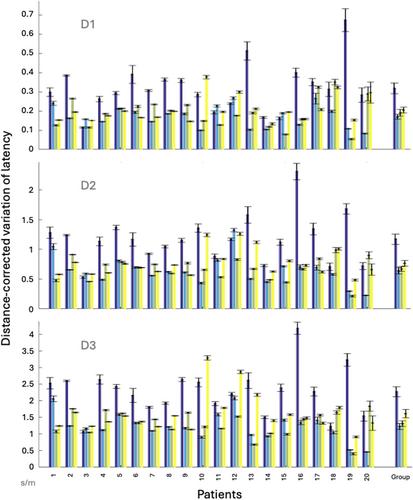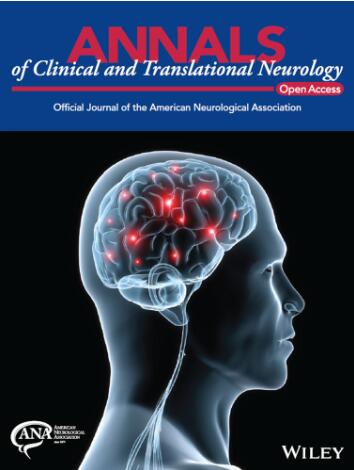Variability of cortico-cortical evoked potentials in the epileptogenic zone is related to seizure occurrence
Abstract
Introduction
Cortico-cortical evoked potentials (CCEPs) were described as reproducible during trains of single-pulse electrical stimulations (SPES). Still, few studies described a variability of CCEPs that was higher within the epileptogenic zone (EZ). This study aimed at characterizing the relationship of CCEP variability with the occurrence of interictal/ictal epileptiform discharges at the temporal vicinity of the stimulation, but not during the stimulation, by effective connectivity modifications.
Methods
We retrospectively included 20 patients who underwent SPES during their stereo-electroencephalography (SEEG). We analyzed the variability of CCEPs by using the post-stimulation time course of intertrial standard deviation (amplitude) and the timing of peak amplitude signal of CCEP epochs (latency). Values were corrected for the Euclidian distance between stimulating/recording electrodes. Receiver operating characteristics curves were used to assess the relationship with the EZ. The link between CCEP variability and interictal discharges occurrence, seizure frequency prior to the SEEG recording, and number of seizures during SEEG recording was assessed with Spearman's correlations.
Results
A relationship was demonstrated between the EZ and both the distance-corrected latency variation (area under the curve (AUC): 0.73–0.74) and the distance-corrected amplitude variation (AUC: 0.71–0.72) and both were related with the occurrence of seizures.
Conclusion
Seizures before/during SEEG impact the dynamics of effective connectivity within the epileptogenic network by reducing the variability of CCEP latency/amplitude when the seizure frequency increases. It suggests a strengthening of the epileptogenic network with the occurrence of many seizures. These findings stress the importance of early epilepsy surgery at a time when the network organization has not yet been complete.


 求助内容:
求助内容: 应助结果提醒方式:
应助结果提醒方式:


